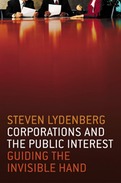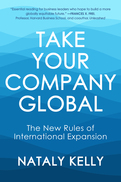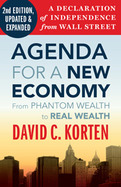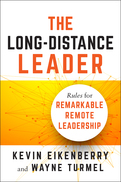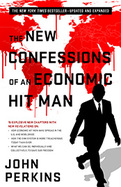With so many recent examples of corporate greed and abuse of power, there is an obvious need for some kind of check on their behavior. But government has largely given up on regulating business, so what alternative is there?
In this important new book Steven Lydenberg outlines how the government can transform the marketplace so that market forces, rather than top-down regulations, move corporations away from such all too typical practices as plundering natural resources, dumping costs on society, and diverting assets to exorbitant executive payouts.
Lydenberg sees the proper role of corporations as creating long-term wealth--wealth which creates value in relationships with stakeholders, employees, customers and communities The heart of this book lies in a series of recommendations for creating practical tools that individuals and governments could use to encourage corporations to act in the public interest. The keys are information, analysis, and consequences.
Corporations and the Public Interest details how data on the social and environmental records of corporations could be made broadly available; how systems for analyzing, interpreting, and discussing that data can be developed and made accessible to the public; and how investors, consumers and others could use this information to reward those companies who are creating long-term wealth and punish those who are not.
These are not small tasks. Without them, however, society cannot reasonably expect that corporations will be directed to act in the public's long-term interests. Only a systematic approach like the one Lydenberg advocates can move corporations to see beyond this quarter's profits.
- Addresses corporate misdeeds and provides antidotes to scandalous corporate behavior
- Details how government can use the marketplace, rather than regulations, to make corporations act more responsibly
- As a pioneer in the field of socially responsible investing, Steven Lydenberg is uniquely qualified to write on this topic
Companies looking to expand used to think about entering international markets, but today you're global from the moment you create a website. Nataly Kelly, Chief Growth Officer at Rebrandly (a global tech company with customers in more than 100 countries) and former VP International Ops and Strategy at HubSpot, says now the goal should be market intensification—building on the presence you already have.
Kelly's MARACA model enables companies to distill the mass amounts of data available to determine if, how, and where they should expand by looking at three key areas of measurement:
MA: market availability-the size of the market opportunity within a given country
RA: real-time analytics-data indicating how your company is currently performing in that market
CA : customer addressability-the measure of your company's ability to address the market, no matter its size
The book is based on Kelly's experiences with building a global business both at HubSpot and as a consultant, but also contains numerous examples from successful global companies of various sizes, such as Airbnb, Canva, Dashlane, GoStudent, Facebook, LinkedIn, Lottie Dolls, Netflix, Revolut, Teamwork, and Zoom. Including information on building a globally minded corporate culture, this is a complete strategic guide to discovering international growth opportunities.
In this revised and updated edition David Korten has fleshed out his vision of the alternative to the corporate Wall Street economy: a Main Street economy based on locally owned, community-oriented “living enterprises” whose success is measured as much by their positive impact on people and the environment as by their positive balance sheet. We will lose nothing in the process because, as Korten ably demonstrates, the supposed services Wall Street offers are simply a con game. And Korten now offers more in-depth advice on how to mount a grassroots campaign to bring about an economy based on shared prosperity, ecological stewardship, and citizen democracy.
As more organizations adopt a remote workforce, the challenges of leading at a distance become more urgent than ever. The cofounders of the Remote Leadership Institute, Kevin Eikenberry and Wayne Turmel, show leaders how to guide their teams by recalling the foundational principles of leadership.
The authors' “Three-O” Model refocuses leaders to think about outcomes, others, and ourselves—elements of leadership that remain unchanged, whether employees are down the hall or halfway around the world. By pairing it with the Remote Leadership Model, which emphasizes using technology as a tool and not a distraction, leaders are now able to navigate the terrain of managing teams wherever they are. Filled with exercises that ensure projects stay on track, keep productivity and morale high, and build lasting relationships, this book is the go-to guide for leading, no matter where people work.
The Unwritten Rules of Managing Up provides refreshingly practical and candid insight into the best practices and techniques that project managers have successfully used for decades to manage a wide variety of senior-level stakeholders—ranging from perfectly competent and pleasant to downright dysfunctional and inept.
While managing up is an incredibly valuable skill for virtually any type of boss (not just the difficult ones), the book includes recommendations for managing six particularly challenging—and common—types of senior leaders. They are the bombastic Tornado, who takes over meetings without realizing it; the Wishful Thinker, who regularly asks the impossible; the Clueless Chameleon, who can't quite decide what he or she really wants (but still holds you responsible for delivering it); the MIA Boss, who is just not around enough; the Meddlesome Micromanager, who hovers and insists you complete a task his or her way; and the Naked Emperor, who falls in love with his or her own crazy ideas. Brownlee also offers basic techniques to use with any boss, even a great one.
This book is not just for professionals seeking to enhance their workplace effectiveness but also for senior leaders interested in addressing their blind spots and coaching others toward a more collaborative, results-focused leadership approach.
The previous edition of this now-classic book revealed the existence and subversive manipulations of "economic hit men. John Perkins wrote that they are highly paid professionals who cheat countries around the globe out of trillions of dollars. Their tools include fraudulent financial reports, rigged elections, payoffs, extortion, sex, and murder. In Perkins's case the tool was debt-convincing strategically important countries to borrow huge amounts of money for enormous, development projects that served the very rich while driving the country deeper into poverty and debt. And once indebted, these countries could be controlled.
In this latest edition, Perkins provides revealing new details about how he and others did their work. But more importantly, in an explosive new section he describes how the EHM tools are being used around the world more widely than ever-even in the U. S. itself. The cancer has metastasized, yet most people still aren't aware of it. Fear and debt drive the EHM system. We are hammered with messages that terrify us into believing that we must pay any price, assume any debt, to stop the enemies who, we are told, lurk at our doorsteps. The EHM system-employing false economics, bribes, surveillance, deception, debt, coups, assassinations, unbridled military power-has become the dominant system of economics, government, and society today. It has created what Perkins calls a Death Economy. But Perkins offers hope: he concludes with dozens of specific, concrete suggestions for actions all of us can take to wrest control of our world away from the economic hit men, and help give birth to a Life Economy.


